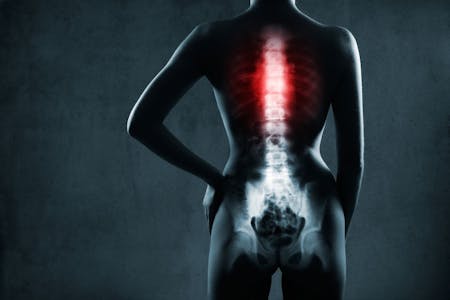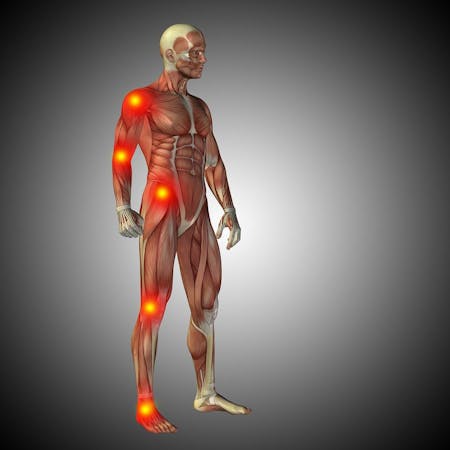Patients exhibiting signs or symptoms of possible nerve or muscle disorders such as ongoing numbness, tingling, burning and weakness are routinely referred by their healthcare providers for Nerve Conduction Velocity (NCV) and Electromyography (EMG). These tests are two electrodiagnostic procedures that are typically performed during the same appointment to assess the health of muscles and the nerve cells (motor and sensory neurons) that control them. NCV and EMG help rule out or detect the presence, location and extent of any disease or injury that may damage nerves and/or muscles.
Nerve Conduction Velocity
Nerve Conduction Velocity is also known as Nerve Conduction Study (NCS). It uses two electrode stickers (surface electrodes), which are applied to the patient’s skin. One stimulates peripheral nerves and the other records it.
NCV measures:
- The speed (in milliseconds) of electrical signals as they travel between two or more points of the nerves and
- The size (amplitude) of the response in millivolts (mV).
This assesses motor and sensory nerve function by testing its ability to conduct electricity. NCV also helps determine if the injury is to the nerve or its insulating myelin sheath. It also determines if you have a nerve disorder or a condition where a nerve injury or disease is affecting the muscles.
Electromyography
Electromyography uses an electromyograph and needle electrodes inserted directly into the muscles to stimulate them and measure their electrical activity. The results are translated into graphs, sounds or numerical values and recorded on an electromyogram for a specialist to interpret. An EMG can rule out or reveal the presence of nerve and/or muscle abnormalities or problems with nerve-to-muscle signal transmission.
Neuromuscular diseases and disorders EMC and NCV help diagnose include:
- Neuromuscular Diseases such as Muscular Dystrophy, Polymyositis (PM), Guillain-Barré Syndrome, Multiple Sclerosis (MS) or Amyotrophic Lateral Sclerosis (ALS)
- Pinched Nerves
- Carpal Tunnel Syndrome
- Cubital Tunnel Syndrome
- Ulnar Neuropathy
- Peripheral Neuropathy
- Peroneal Neuropathy
- Tarsal Tunnel Syndrome
- Guyon’s Canal Syndrome
- Spinal Disc Herniation
We Can Help!
Have you been diagnosed with a neuromuscular condition? If so, physical therapy may help. Neuromuscular physical therapy can help limit your disability and reduce such symptoms as pain and muscle spasms/contractions while addressing structural, gait and postural abnormalities. We can help you restore as much fitness as possible and help you maintain as much independence as possible.
Call us today to set up an appointment.


